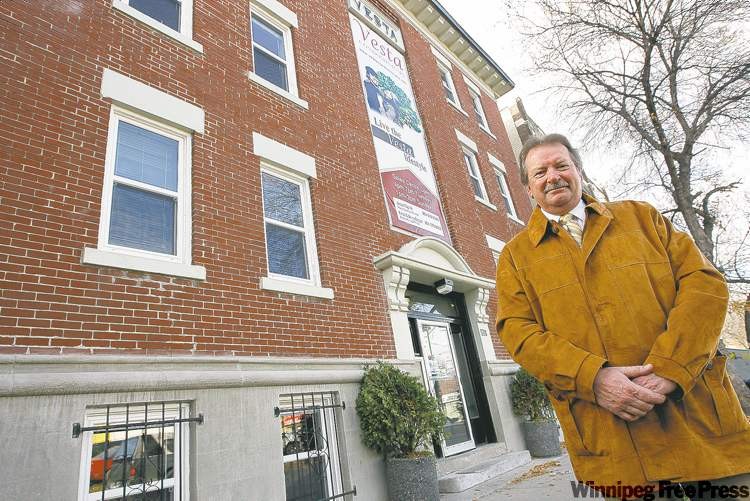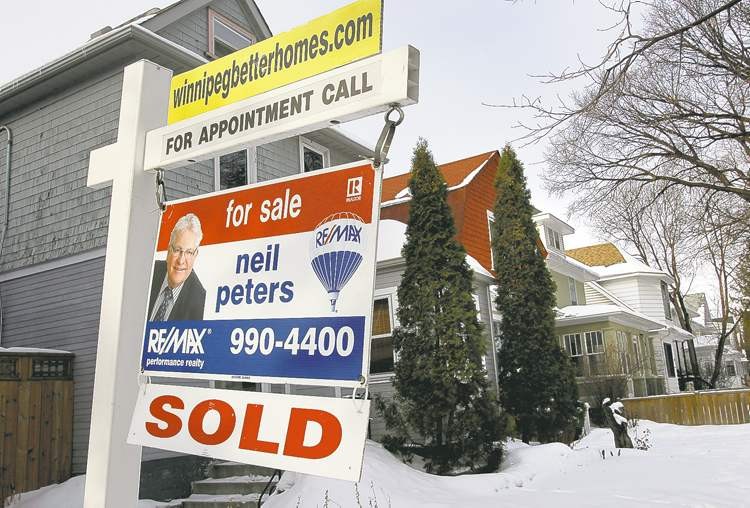Real estate hot or not Winnipeg Free Press
Post on: 15 Июнь, 2015 No Comment

Hedge-fund manager says sector still holds promise if you’re smart about it
Quick facts
- Canada vs. U.S: Both nations should do well attracting foreign capital, which will help drive commercial real estate in coming years, but real estate fund investment manager Andrew Moffs says the U.S. will fare better because it has more large, urban centres such as San Francisco, New York and Chicago that attract billions of investment. The REIT market in Canada doesn’t have as many attractive assets for private buyers, he says. You need to own a national portfolio of prime office space, for example, but a lot of these (Canadian REITs) can have a mishmash of different types. He says many of Canada’s top REITs will continue to perform well, but the smaller ones might struggle to appreciate as they did during the last few years. When there was an era of cap rate compression, you could have bought anything you wanted and done well. If you bought it in 2009, it would have gone up in value in 2010, even if you didn’t show up to unlock the building.
- What about Winnipeg? Like our housing market, the city’s commercial real estate sector is booming. Real Property Association of Canada data show the total return (capital and income growth) for commercial real estate in Winnipeg was more than 17 per cent in 2013, ahead of the national average of 10.7 per cent. Moffs says he is not an expert on Winnipeg’s commercial market. It is not a focus for his fund, but Winnipeg does seem very active, with a lot of new buildings and developments underway. Looking at the numbers. There is a lot of supply coming, relative to the market, he says. Maybe that’s a good thing because there hasn’t been the supply in Winnipeg in many, many years, but it’s certainly not a market where global investors look to allocate capital, so it has to come from local sources.
- Home appreciation: Canada’s residential market likely won’t continue to be as lucrative as it’s been in the last decade, Moffs says. But he doesn’t envision a serious downturn in prices to the tune of 30 per cent. A correction, however, is needed. The issue is affordability in Canada, he says. It’s not necessarily overheated by speculation so much as that logical buyers are simply being priced out of the market.
Few people with their money on their mind haven’t been talking about real estate in recent years.
After all, it’s the ultimate tangible asset many of us own, regardless of whether we are saving for retirement or not.
Most people own a home, or at least strive to do so, and most of us who own property have seen it rise in value over the last decade.
But as prices continue to climb, there is growing concern real estate may no longer be the winner it used to be. In fact, it could turn into a loser soon, many observers of the industry believe, including Pimco’s Ed Devlin, who said earlier this week the world-famous fixed-income investment firm forecasts residential real estate in Canada could decline between 10 and 20 per cent in the next three to five years.
Despite many ominous predictions, the president of a leading Canadian real estate hedge fund sees good investment opportunities ahead for those who are smart about how they invest in North American real estate.
Andrew Moffs is president of Toronto-based SRE Securities Canada, which is affiliated with U.S. private investment fund giant Starwood Capital Group, which has more than $29 billion in assets under management.
He was in town recently at an event hosted by the Winnipeg CFA Society to talk about the North American real estate market.
His take is we are still in the middle innings of real estate recovery, led by the U.S. market, and despite concerns about a bubble, good returns can still be found for investors willing to do their homework.
The fundamentals for real estate are positive, meaning that a recovering U.S. economy, and in Canada a sustainable economy, will help drive the market, he says in an interview with the Free Press.
Both economies may have lower GDP growth at about two per cent, which is below the average of three per cent, but it’s still good enough for landlords to have enough tenant activity.
Moffs’s fund invests only in publicly traded real estate investment trusts (REITs) and other companies involved in the real estate industry that are traded on stock exchanges in Canada and the U.S. The fund can be both long (buy low, sell high) and short (betting against overpriced assets) on various sectors in the North American market.
While most of us focus on the residential market (Where will the price of our home go?), Moffs’ focus is the commercial market, and it’s this very large, diverse sector he predicts will lead the real estate sector going forward.
That said, commercial real estate has already done exceptionally well since March 5, 2009, when stock markets hit their bottom.
The MSCI U.S. REIT Index, a composite of all publicly traded REITs in the U.S. has a compound annual return of more than 30 per cent since that time, while the Canadian counterpart, the S&P/TSX Capped REIT Index, has averaged more than 17 per cent a year.
Yet Moffs argues much of that growth was a result of capital appreciation. Property values were increasing as a result of limited supply, high demand driven by low interest rates and institutional investors — sovereign and pension funds, for example — looking for safe places to park their money.
For an owner of commercial property, including apartments, times have been good.
They’ve experienced a period of capitalization rate compression, he says.

This term refers to a decrease in the cap rate, an important metric for real estate investors that represents the yield from an investment property.
When cap rates are high, the income earned from a property is very good relative to its value. In other words, you can buy it cheap and get a good yield. When cap rates are low, real estate investments can be less attractive, because you have to pay more to own an income property and the annual net operating income you earn from rent makes for a smaller yield. Basically, you’re paying more to earn less.
But cap rate compression is generally good for existing owners because it’s usually the result of increasing property values relative to the income these properties produce. So although the yields have gone down, that’s only because property values have increased.
Yet Moffs says it’s unlikely this era of cap rate compression will continue, especially with interest rates expected to rise, which will probably put a stop to steadily rising property values. He notes we’ve already seen the effect of what just the hint of an end to low rates can do after last May’s announcement by the U.S. Federal Reserve it might scale back economic stimulus programs. The rates on 10-year U.S. treasuries, on which fixed mortgage rates are based, spiked and REIT values dropped by double digits in many cases.
In the short term, people look for yield from real estate, and if you have other alternatives and that yield you’re getting from a REIT is less attractive, you’ll move elsewhere.
Yet REITs recovered, and Moffs says when interest rates actually rise, that isn’t necessarily bad news for the real estate market, because as long as the increases are gradual they are usually the result of improving economic conditions.
Good things happening in the economy translate well into real estate, he says.
If you have growth, you have more jobs. There are more office workers, more people renting apartments and shopping in malls, so if it’s for good reasons, real estate should capture some of that inflation.
But it’s spiking rates that hurt real estate in the short term.
Unfortunately, real estate can’t capture that spike well, Moffs says. If you have a lease with a few years on the term, you can’t get higher rent right away.
So you’re earning the same income, but you have increased expenses, in particular higher interest payments on debt.
Still, real estate investing is by nature a long-term venture, and Moffs says investors should focus on REITs that have a history of buying good assets with strong cash flows from tenants and in sectors with limited supply.
The question you need to ask is: Will that REIT be worth more tomorrow because of the quality of its assets, notwithstanding how the public market values its assets?
Furthermore, location is more important than ever, because Moffs says there is a wall of institutional investor cash on the sidelines looking to invest in real assets in prime locations in high-profile markets.
Institutional investors are especially attracted to live-work-play-themed multi-development projects in densely populated hubs in major cities.
If anything, we learned coming out of the last crisis there’s a desire from foreign buyers for real assets, especially Chinese buyers, he says. They need to allocate capital into assets where they have liquidity.
As for us small investors, Moffs says we should also be concerned about liquidity and diversification when investing in real estate assets. For that reason, he suggests investing in REITs over owning investment properties directly, because REITs provide both.
Sure, there are periods of time in the short term where the stock market will cause some volatility in these stocks, but if you’re a long-term investor — and presumably if you want to invest in real estate, you are — then you should take a long-term view that these should provide decent income and capital appreciation over time.
giganticsmile@gmail.com
Republished from the Winnipeg Free Press print edition March 8, 2014 B11














